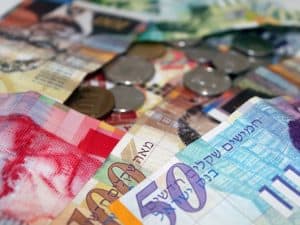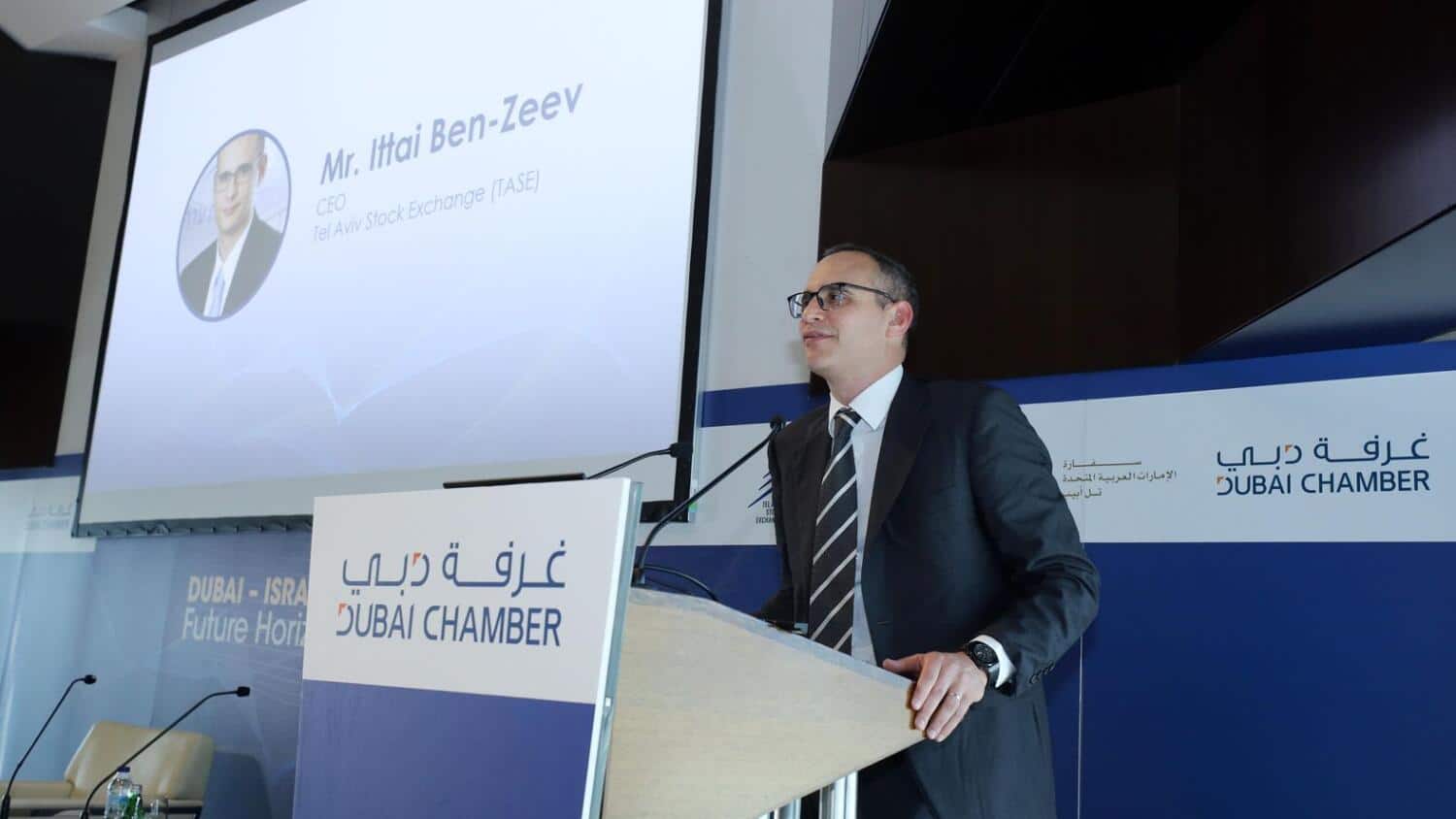The Tel Aviv Stock Exchange (TASE), as part of a drive to globalize, is launching an effort to draw investors not only from the UAE but also from Saudi Arabia and other GCC countries, as well as from the rest of the world, CEO Ittai Ben-Zeev has told TRENDS in an exclusive interview.
“We see the emirates as a growing power and believe that we can leverage the Emirati capability of long-term planning and execution for the benefit of the entire region,” Ben-Zeev said in an interview in the run-up to a trip to Dubai where he will be heading a delegation of CEOs of 25 TASE-listed companies.
The UAE is key to the relatively small but growing Israeli exchange’s new strategy of “going east” to globalize its foreign investment pool, which has traditionally been heavily oriented towards the United States, Ben-Zeev said.
“In the east, you have very interesting markets that Israel hasn’t put a lot of effort into, and now’s the time to do so,” he said.
His main selling point to Arab investors is that buying shares in TASE is the best way to access “the success story of the Israeli economy.”

Israel in 2021 experienced a formidable 8.1 percent growth rate, according to Alex Zabezhinsky, chief economist at Meitav Dash, an investment house listed as one of TASE’s more than 500 companies.
He said the high-tech sector has developed well on TASE. This, he says, affords investors a chance to buy into smaller Israeli tech companies than those listed on the US Nasdaq.
All sectors of the Israeli economy are said to be reflected in TASE, where tech includes food tech, cyber, med-tech, and fintech.
There have been more than 100 IPOs in the last two years, about two-thirds of them tech-oriented.
One possible drawback compared to other exchanges, Zabezhinsky said, is that regional stock exchanges are at a greater risk of external shocks such as wars.
However, he added, disruptions were limited and very short-lived over the last 20 years.
“There weren’t problems for more than a week,” he said.
Visit to the UAE
Meanwhile, the aforementioned trip, co-organized with the UAE embassy in Tel Aviv and hosted by the Dubai International Chamber, started on Monday, February 28, and will continue till March 3.
It is being seen as one of the most significant efforts to catalyze private-sector cooperation since the signing of the Abraham Accords in September 2020.

The TASE effort has vastly important political implications because Ben-Zeev envisions attracting investors in the Israeli economy from Gulf countries that do not have formal relations with Israel but will be enabled, after regulatory and other issues are tackled, to access TASE companies via the UAE.
This means, at least in theory, that GCC investors could buy into the Israeli economy, an exciting prospect for advocates of Arab-Israeli normalization but another blow to Palestinians left out of the process, who see Arab investment in Israel as greenlighting occupation of the lands earmarked by most of the international community for their state.
Ben-Zeev says there are two ways Saudi investors would eventually be able to buy into TASE companies.
The first is to buy shares in Israeli companies that will be cross-listed on the Abu Dhabi Security Exchange (ADX).
The second is to buy shares through a broker in Abu Dhabi who is a registered remote member of TASE.
In addition to marketing TASE, the trip is aimed at broadening the horizons of Israeli companies, Ben-Zeev says.
“We want to help them understand the mentality, the culture, and the way of doing business to expand their activities, and expose them to international investors.”
The cultural divide

He said early Emirati-Israeli business interactions after the Abraham Accords were hobbled by cultural misunderstandings, with the Israelis expecting overly quick deals and results.
In some cases, when Israeli executives did not get immediate responses from Emirati counterparts, they misconstrued it as a negative answer, Ben Zeev said.
“It is essential to start learning the history and mentality of the other side. Part of the purpose of the delegation is to educate our members in Emirati culture,” he explained.
“It’s been a year and now is a great time to get a better understanding of each other.”
TASE has been plagued by a language barrier because not all of its companies translate their materials into English.
Ben-Zeev has been trying to redress that. He told TRENDS that in the future data would also be available in Arabic.
“Our goal is that not only the exchange will have publications in Arabic but the companies too.”
Geopolitical considerations
Ben-Zeev took issue with the idea that political tensions such as those over the Israeli government and settler plans to evict Palestinian families in the Sheikh Jarrah neighborhood of Jerusalem could impinge on his efforts.
“When you live in Israel, when you grow up in Israel, you are used to tension. This is part of our routine. I see no impact on our relations with the UAE or on TASE.”
But Palestinian financial and political analyst Sam Bahour, based in the occupied West Bank city of Ramallah, argued that Gulf investment in TASE would help perpetuate the occupation.
“Any kind of economic support to Israel empowers it by default to not change its practices towards the Palestinians,” he said.

